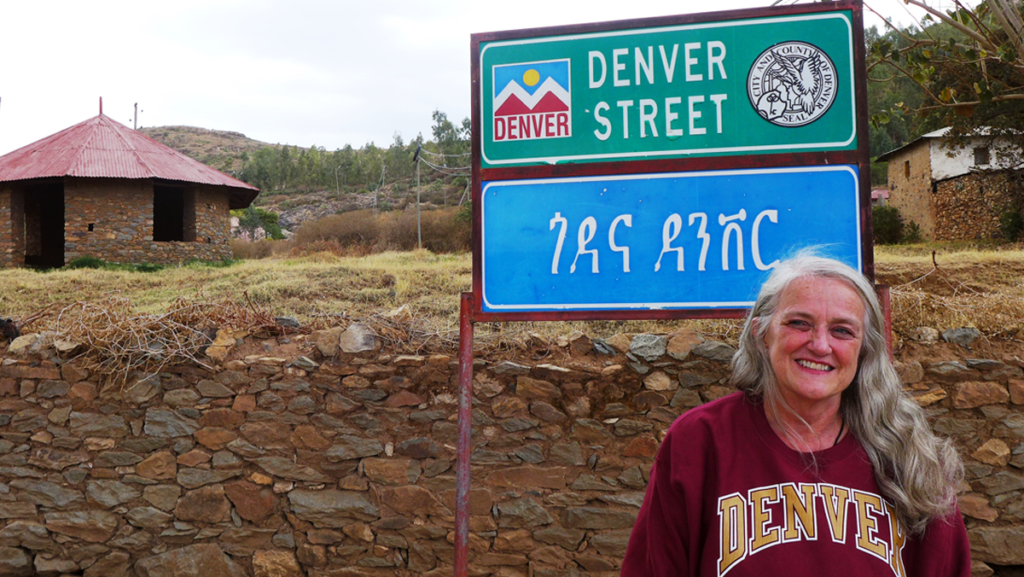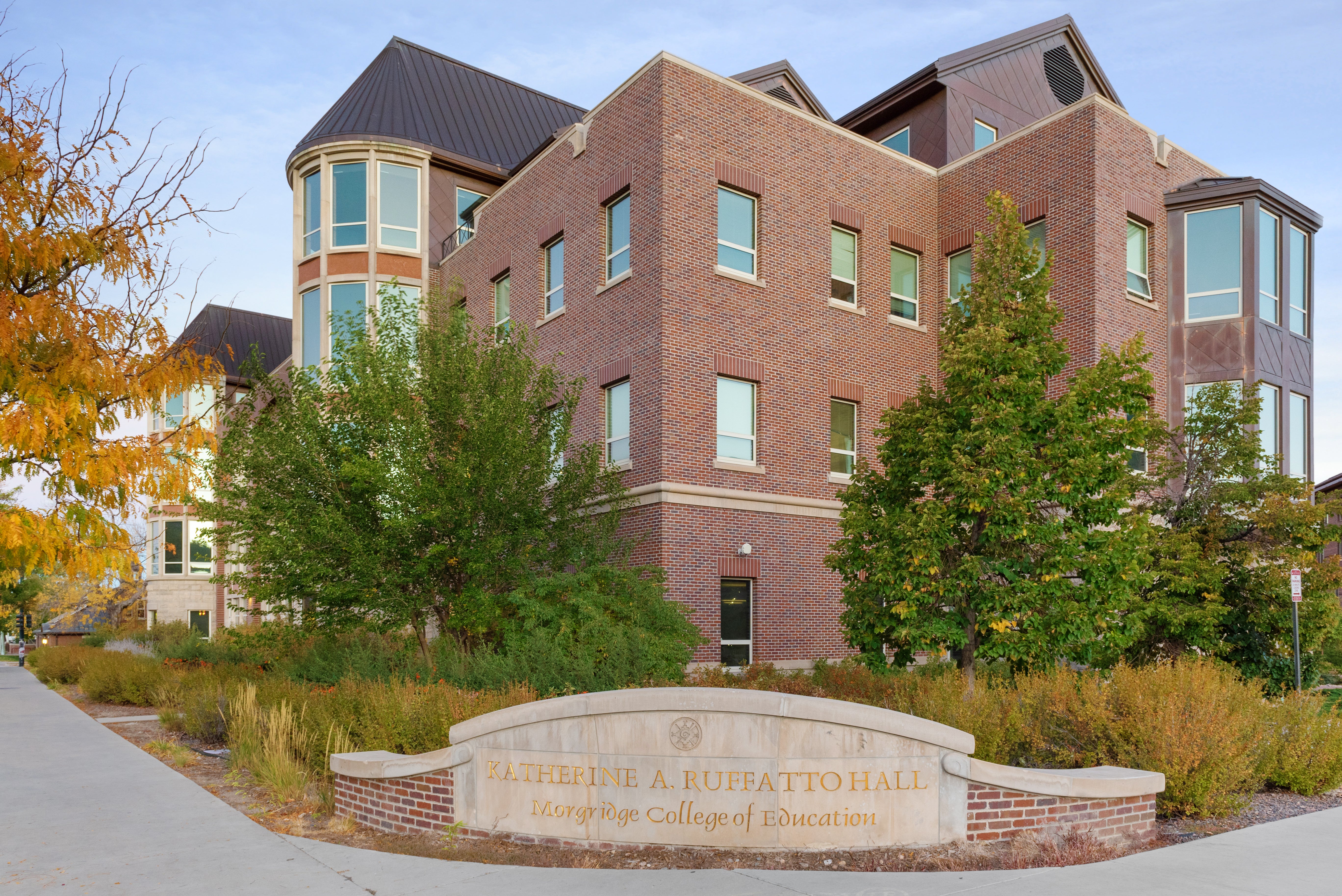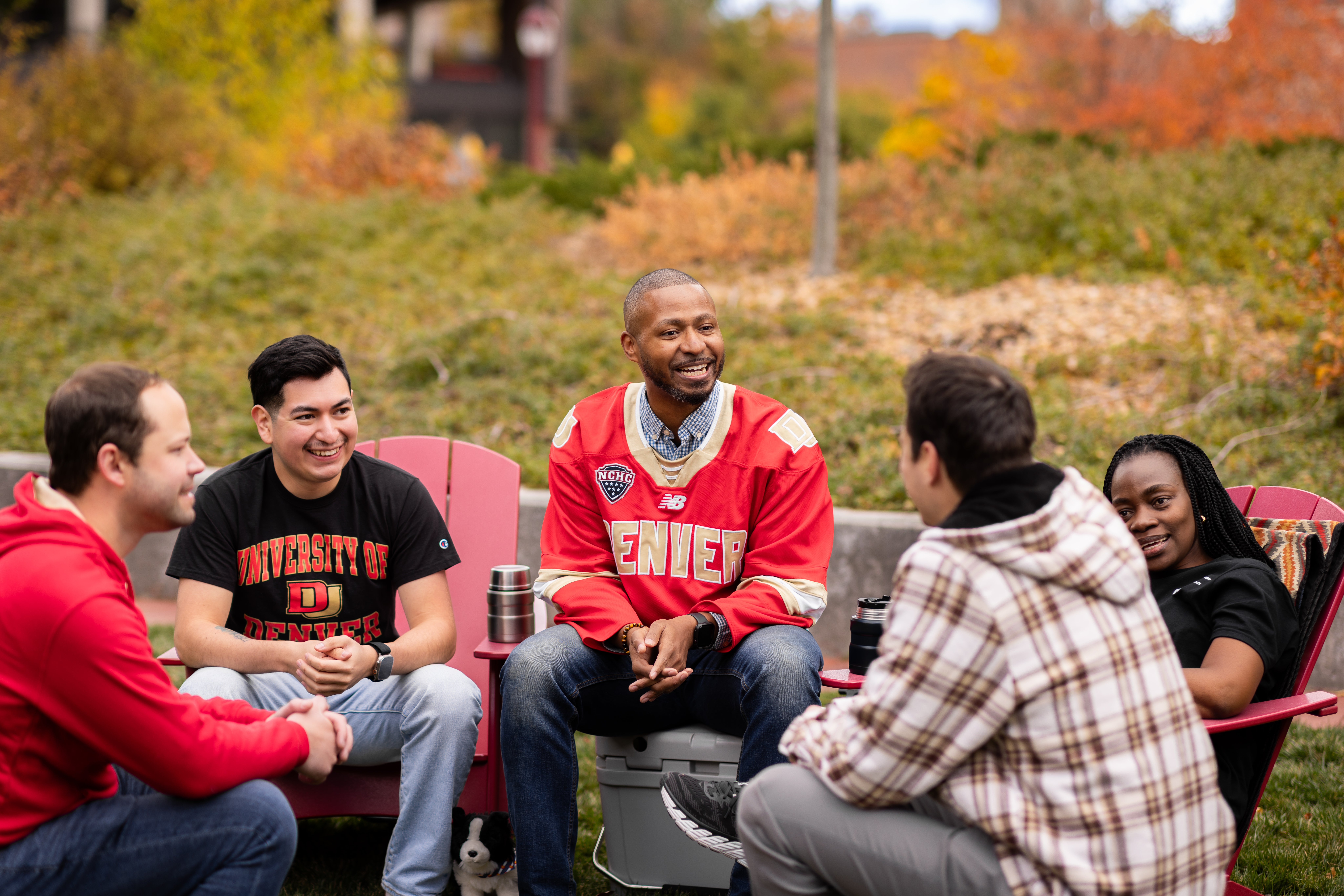Alum Champions Open Access in Ethiopia
When Library Information Sciences alumna Janet Lee (MLS, ’78) decided to apply for a Fulbright to return to Ethiopia, where she had spent her most recent sabbatical and previous time in the Peace Corps, she didn’t expect the process to move so quickly. But that it did, and within months of applying she was packing her bags (and lots of books, Chromebooks, and a server) for Axum, Ethiopia, a Denver Sister City, to spend 10 months engaging in research in open access publishing at the University of Aksum. In a country where there are only 35 open access journals, Lee is seeking to make access to academic articles much easier for University faculty and students.
She graciously made time to talk with us in June 2017, in the midst of the chaos of leaving.
Lee said at the time that she planned “…to explore avenues of scholarly publishing in Ethiopia that ensure that faculty are provided an opportunity to share their knowledge, perspectives and values and that students and colleagues have unfettered access to their collective scholarship.”
Her arrival in late August 2017 was met with a few hiccups, but eventually she arrived at what came to be her permanent residence in Axum, the Sebean Hotel. The hotel is within walking distance of her assignment at the Foundation Library and the staff is welcoming.
To her surprise, she passes Denver Street every day on her walk to the Foundation Library. Denver and Axum have been sister Cities for 21 years and this was one of the reasons Lee choose Axum as her Fulbright destination. With the help of some current Peace Corps volunteers and friendly residents, she learns the ropes and begins to study Amharic, the official language of Ethiopia. Her greatest challenge is the Aksum University Library, which is under construction and will be moving to a new building in the next year. More than once the lack of technology has given her pause and caused her to question her assignment.
“The library is grossly underfunded and understaffed,” she writes in her blog. “The infrastructure campus-wide is very weak and the Internet has extremely low bandwidth. I celebrate the small things, such as being picked up by campus service every morning and not having to negotiate with a Bajaj [three-wheeled taxi] driver.”
Lee approaches her trials with positivity and an open heart. She truly loves Ethiopia, its culture, and the rich heritage of its people. She treasures building relationships and learning from her experiences, so even though she may experience a setback, she takes it as part of her journey.
“I am grateful to be living in Axum, where every day is a gift,” she writes.
In October, her shipping container arrived from the United States, filled with donations and items Lee was able to secure before her trip. She was able to celebrate the arrival of a set of World Book Encyclopedias, heavy metal bookshelves, her Chromebooks, server, and lots of donated books.
“In one box, I found a near complete run of Journal of Ethiopian Studies. Who but a librarian or a researcher could be excited about this find?”
One morning in December, a colleague mentioned over tea that there were football protests and something about student protests on campus. After another confusing meeting, Lee received a call from the Embassy. She had been inadvertently left off of an important email.
“A student had been killed in nearby Adigrat,” she writes. “I learned later that it might have been after two rival football teams met and the student killed was not from this region. This sparked protests nationwide causing many college campuses to be closed, Aksum University where I am working not being one of them.”
She assured the Embassy that she is safe. The next day a student from Axum was killed, and his funeral called for increased military presence around campus and the town. In response, and to prevent more rumors and violence, the government shut down access to all social media, internet, and data plans. Lee grew concerned – her mission in Ethiopia is to provide open access via the internet and the unforeseen shut down is stressful. The last access shutdown, before her arrival, lasted for months. Without access to their texts, students were forced to stop their studies and make up for lost time when the ban was lifted.
Luckily, it did not last long and she was able to load the Koha software to the library’s server and implement a new catalog system. Just in time, as the library will be moving to a new building and her next challenge is how to transfer the collection. She only needs to wait on some additional help to implement the Koha system across the library.
By early February, she is able to make a planned trip to Haramaya (formerly known as Alemaya) University to co-teach a class on Digital Libraries. A much older university than Axum, Haramaya is full of culture and history, and an interactive library. Haramaya had been closed during the December protests, and students were frantically trying to complete their missed work and keep up with their new semester course load. Still her lecture was well attended and the students delighted in hearing her American accent.
Lee enjoyed her time there so much she entertained thoughts of trying to move her location, but on her trip back to Axum her colleague called her. He had taken the same route as her, hours later, and been caught in a deadly protest. This was the beginning of a series of protests that resulted in the resignation of the Prime Minster, Hailemariam Desalegn, and a State of Emergency. She decided to stay in Axum, where it is peaceful and safe.
By this time, her work implementing the Koha system has stalled. Still waiting on additional help, she moves on to other initiatives. Two significant personal collections (Gebru Tareke and Zewde Gabre-Sellasie) have been classified, labeled, and placed in glass cases in the Ethiopian Collections room and cables have been laid on the new building to provide it with a network. All they are waiting on is the ‘go’ to move into the new building.
In March, Lee is able to circle back to a project she began before her trip. In June 2017, she collaborated with a fellow Peace Corps alum to bring his technology with her to Ethiopia. Bill Graf is the founder of ET Learns and implements the RACHEL server with Chromebook operating systems to allow access to a wide array of databases. Once the server is loaded, students will have access to the Ethiopian curriculum, accompanying plasma videos, open access textbooks, power typing, and many science, technology, and mathematics resources. Because these resources are housed on a server, there is no dependence on access to the internet. In a country where internet access and shutdowns are common, the new technology allows students to continue their studies despite outside unrest. With the help of some volunteers and the new building complete, she is able to set up the new Chromebook lab, nearly a year after her initial meeting with Graf.
The library is slated to open in early May and Lee’s sons are expected to join her for its opening.
“Perhaps,” she writes, “they will come to understand what makes their mother tick and why she keeps coming back to this incredible country so often.”
You can keep up with Lee by following her monthly blog https://ilceig.wordpress.com/papers-presentations/
Learn More About our Library and Information Science program



